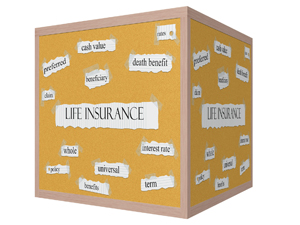Last updated: Feb. 2, 2014
Proceeds of Insurance Tax Free to Shareholders
 Insurance can be complicated, but introducing tax implications related to corporate life insurance plans raises the complication factor enormously. There are 4 types of life insurance:
Insurance can be complicated, but introducing tax implications related to corporate life insurance plans raises the complication factor enormously. There are 4 types of life insurance:
- Group term life insurance may be offered by a company or partnership for life and accidental death and dismemberment (AD&D) coverage to an employee or to the employee and family members. It is deductible to the employer as long as all full-time employees have access to coverage in the group. Group term life insurance premiums paid by the employer are a taxable benefit in the hands of the employee.
- Term life insurance provides coverage at a fixed rate of payments for a limited period of time, which is also known as the relevant term. Coverage at the previous rate of premiums is no longer guaranteed once that period expires, and the client must then either forego coverage or potentially obtain further coverage with different payments or conditions. Group term and term life insurance are also known as pure insurance.
- Whole life insurance remains in force for the insured’s life and in most cases requires premiums to be paid every year.
- Universal life insurance provides permanent life insurance protection with a tax-advantaged investment component. As the investment portion generates a return, the cash can be used to pay part or all of the cost of the insurance. The policy also has a cash value that can be accessed for emergencies, retirement or for estate planning needs.
Whole life and universal life comprise pure insurance and tax-sheltered savings components and command higher premiums than term life insurance.
Corporations and partnerships, including farming enterprises, might also acquire insurance for other reasons:
- To protect the business against the loss of an operating partner or key employee
- To fund a buy-sell agreement to protect each co-owner on the death or disability of a stakeholder
- To make sure the business can always pay the bills if it depends on an owner’s ability to generate income
A whole life insurance policy can be used as collateral for a loan, and the interest on the loan is deductible. A portion of the premiums related to the net cost of pure insurance, that is the premiums associated with term life insurance, would also be deductible.
Insurance payouts upon the death of the policy holder can receive favourable tax treatment.
The net proceeds from the policy on the death of the insured are added to the corporation’s capital dividend account. This amount can be distributed tax-free to the shareholders. Such a distribution to a partnership would increase the adjusted cost base of each partner’s interest.
This article originally appeared in Western Producer, February 14, 2014.
